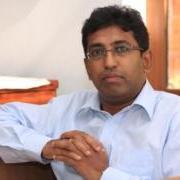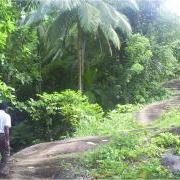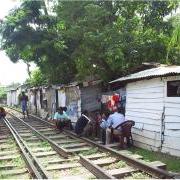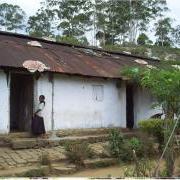Project Year
2009
Region(s)
South Asia
Country(ies)
Sri Lanka
Project Description
This project will explore whether mobile phones help smoothen consumption expenditure among the poor with irregular income streams. It intends to do a qualitative study in Sri Lanka to assess adoption and impact of such services within the economic, social and cultural context of the identified group. It is a qualitative project based on a comparison among people living in three different social settings: one urban, one rural, and one plantation/residential agricultural estate.
Researcher(s)
Harsha de Silva
About the Researcher(s)

Synopsis of Research Results
Background
 In the developing world numerous innovations are being introduced on mobile phone
platforms to cater to the needs of the financially constrained population. Among important
emerging application are 'transformational' financial services; targeting those hitherto
excluded from the formal financial system. This genre of applications, referred to
using the catch-all term m-finance takes a variety of forms from payments for small
purchases to making micro-savings. Thus with the possibility of storing and transferring
funds among the community it could well be that people could engaging in buying from
and selling to each other 'value' to manage surplus and deficit situations. Perhaps
it may be more accurate to categorize this activity as operating a 'quasi checking
account' or a 'quasi debit card'. In this background the broad research question was
to determine if and how m-finance services could help smoothen consumption expenditure
among the poor with irregular income streams.
In the developing world numerous innovations are being introduced on mobile phone
platforms to cater to the needs of the financially constrained population. Among important
emerging application are 'transformational' financial services; targeting those hitherto
excluded from the formal financial system. This genre of applications, referred to
using the catch-all term m-finance takes a variety of forms from payments for small
purchases to making micro-savings. Thus with the possibility of storing and transferring
funds among the community it could well be that people could engaging in buying from
and selling to each other 'value' to manage surplus and deficit situations. Perhaps
it may be more accurate to categorize this activity as operating a 'quasi checking
account' or a 'quasi debit card'. In this background the broad research question was
to determine if and how m-finance services could help smoothen consumption expenditure
among the poor with irregular income streams.  The urban poor living in Colombo were involved in low-level casual work such as selling
vegetables on the road-side or engaged in whatever work they can find during the course
of the day for which they receive a daily payment. In many instances, these people
worked less than 20 days per month. In Kurunegala the poor were mainly engaged in
small-scale tenant farming and given lack of access to irrigation systems they depended
entirely on rain. For this reason, farming was not a full-time occupation and they
also were always in the lookout for other casual work such as assisting masons and
carpenters and other ad-hoc daily work. We found that being tenant farmers, after
giving the share of the harvest to the landlord, they were left with small quantities
of their harvest. In the tea plantations the main occupation was related to tea-plucking.
In addition, we they also worked in small-scale home gardens and in a few instances
kept cattle. We found the availability of work and thus income depended largely on
weather conditions; as they could work 4-5 days of work in dry weather which could
decline to just 2 days a week during in rain.
The urban poor living in Colombo were involved in low-level casual work such as selling
vegetables on the road-side or engaged in whatever work they can find during the course
of the day for which they receive a daily payment. In many instances, these people
worked less than 20 days per month. In Kurunegala the poor were mainly engaged in
small-scale tenant farming and given lack of access to irrigation systems they depended
entirely on rain. For this reason, farming was not a full-time occupation and they
also were always in the lookout for other casual work such as assisting masons and
carpenters and other ad-hoc daily work. We found that being tenant farmers, after
giving the share of the harvest to the landlord, they were left with small quantities
of their harvest. In the tea plantations the main occupation was related to tea-plucking.
In addition, we they also worked in small-scale home gardens and in a few instances
kept cattle. We found the availability of work and thus income depended largely on
weather conditions; as they could work 4-5 days of work in dry weather which could
decline to just 2 days a week during in rain. Urban, rural and estate poor demonstrated many similarities in the usage of mobile
phones. Most had pre-paid connections and reloaded their account for USD 0.50 to USD
1 at a time which lasted for approximately 1-2 weeks. They used the phones to make
voice calls for essential purposes to keep the costs at a minimum. They also used
much cheaper text messages (short message services or SMS) more regularly. Answering
incoming call did not attract a charge so they were not concerned about answering
longer calls. We found that mosthad been using mobiles phones for many years and already
realized benefit. For instance a male from Colombo said "In 1999 I purchased my first mobile phone. At that time I worked as a three-wheel
taxi driver. I felt the need for a mobile phone as I found it easier for my customers
to contact me easily and to ask me to pick them up at any place.” It was also found that some bought mobile phones to contact relatives working in the
Middle-East who provide them with financial support. The discussions revealed that
mobile phones helped them keep in touch with their friends and relatives and they
also helped them obtain information about the availability of casual work opportunities.
In the rural and estate sectors some said the make calls to obtain information about
vegetable prices before they took their produce to market. Other groups, such as young
people, who engage in studies, sometimes informed their friends by phone about tutorial
classes.
Urban, rural and estate poor demonstrated many similarities in the usage of mobile
phones. Most had pre-paid connections and reloaded their account for USD 0.50 to USD
1 at a time which lasted for approximately 1-2 weeks. They used the phones to make
voice calls for essential purposes to keep the costs at a minimum. They also used
much cheaper text messages (short message services or SMS) more regularly. Answering
incoming call did not attract a charge so they were not concerned about answering
longer calls. We found that mosthad been using mobiles phones for many years and already
realized benefit. For instance a male from Colombo said "In 1999 I purchased my first mobile phone. At that time I worked as a three-wheel
taxi driver. I felt the need for a mobile phone as I found it easier for my customers
to contact me easily and to ask me to pick them up at any place.” It was also found that some bought mobile phones to contact relatives working in the
Middle-East who provide them with financial support. The discussions revealed that
mobile phones helped them keep in touch with their friends and relatives and they
also helped them obtain information about the availability of casual work opportunities.
In the rural and estate sectors some said the make calls to obtain information about
vegetable prices before they took their produce to market. Other groups, such as young
people, who engage in studies, sometimes informed their friends by phone about tutorial
classes. The barrier is not in the minds of the people but in the regulatory framework and innovation in business models to find a way to convert airtime in to cash with minimum transaction costs. In countries where m-finance is very popular such as Kenya or the Philippines, laws on m-money exist and all stakeholders act within the specified framework. Thus it is a matter of time before the Government of Sri Lanka introduces a legal-regulatory framework that will create the opportunity for service providers to arrive at a profitable model for large numbers of people to engage in m-finance that will inter alia enable consumption smoothening among the poor. Thus, soon the day would arrive where not only on the consumption side but also on the saving side poor could effect micro-savings for a fraction of the costs now involved in such transactions.



